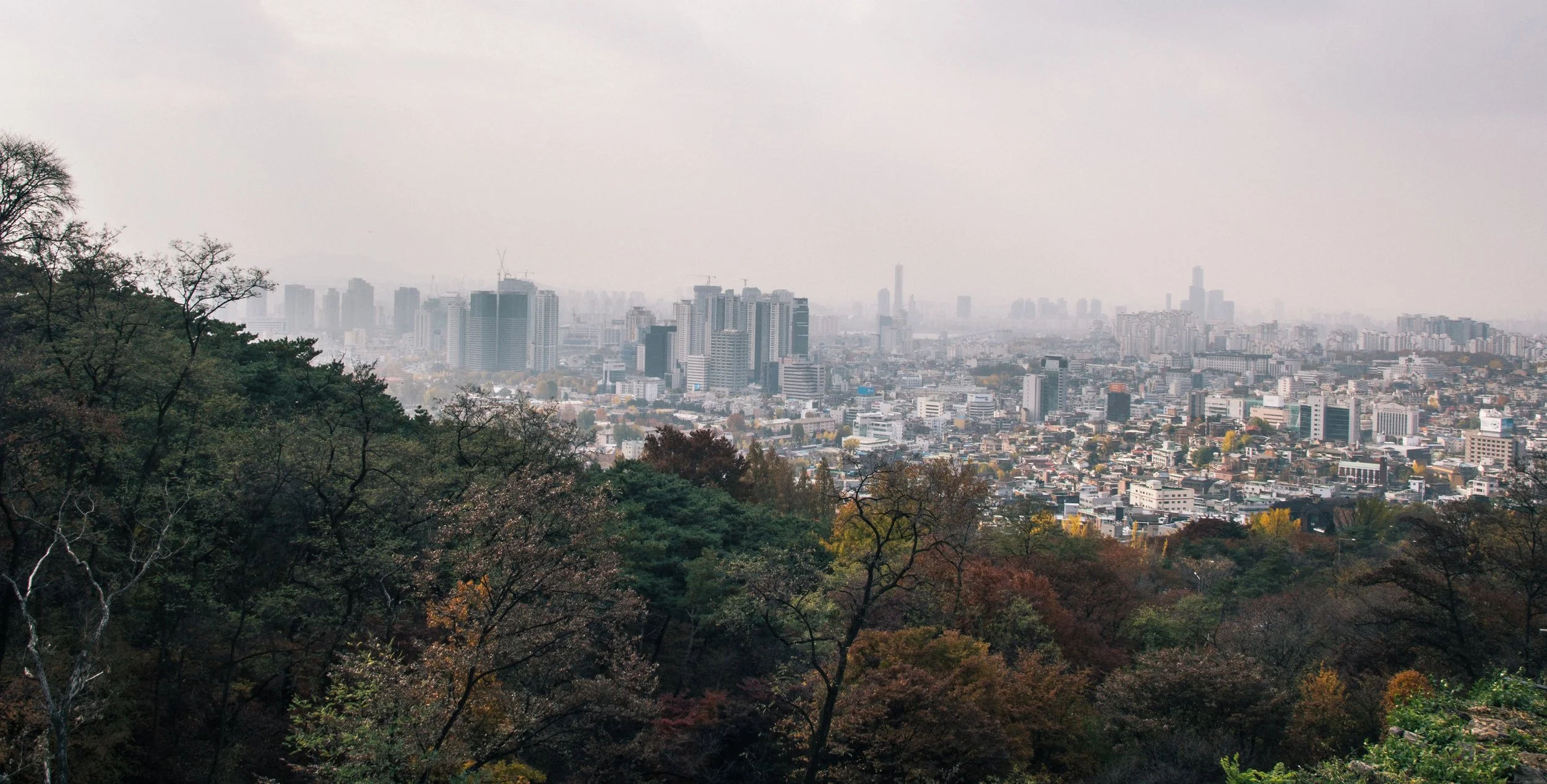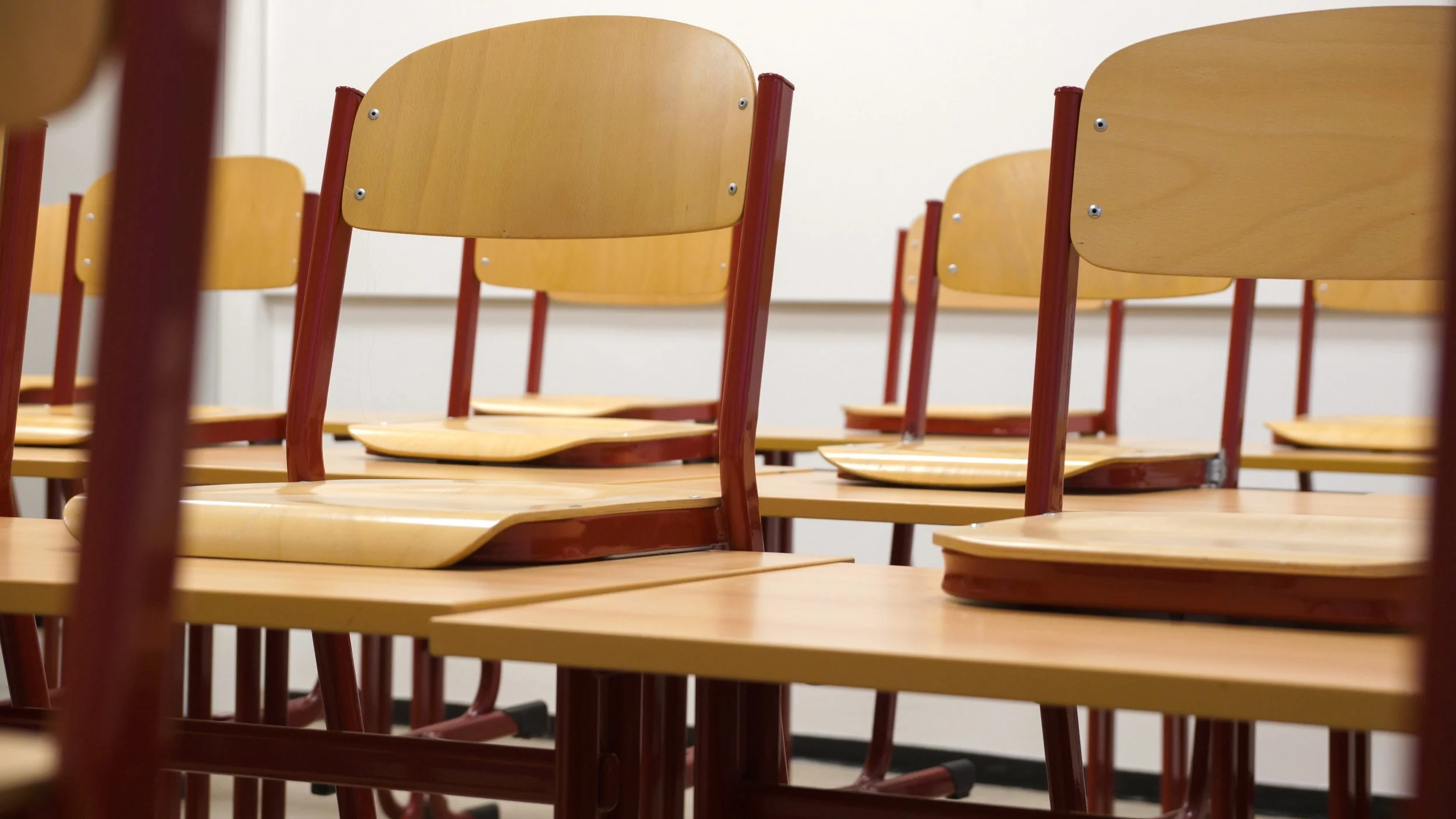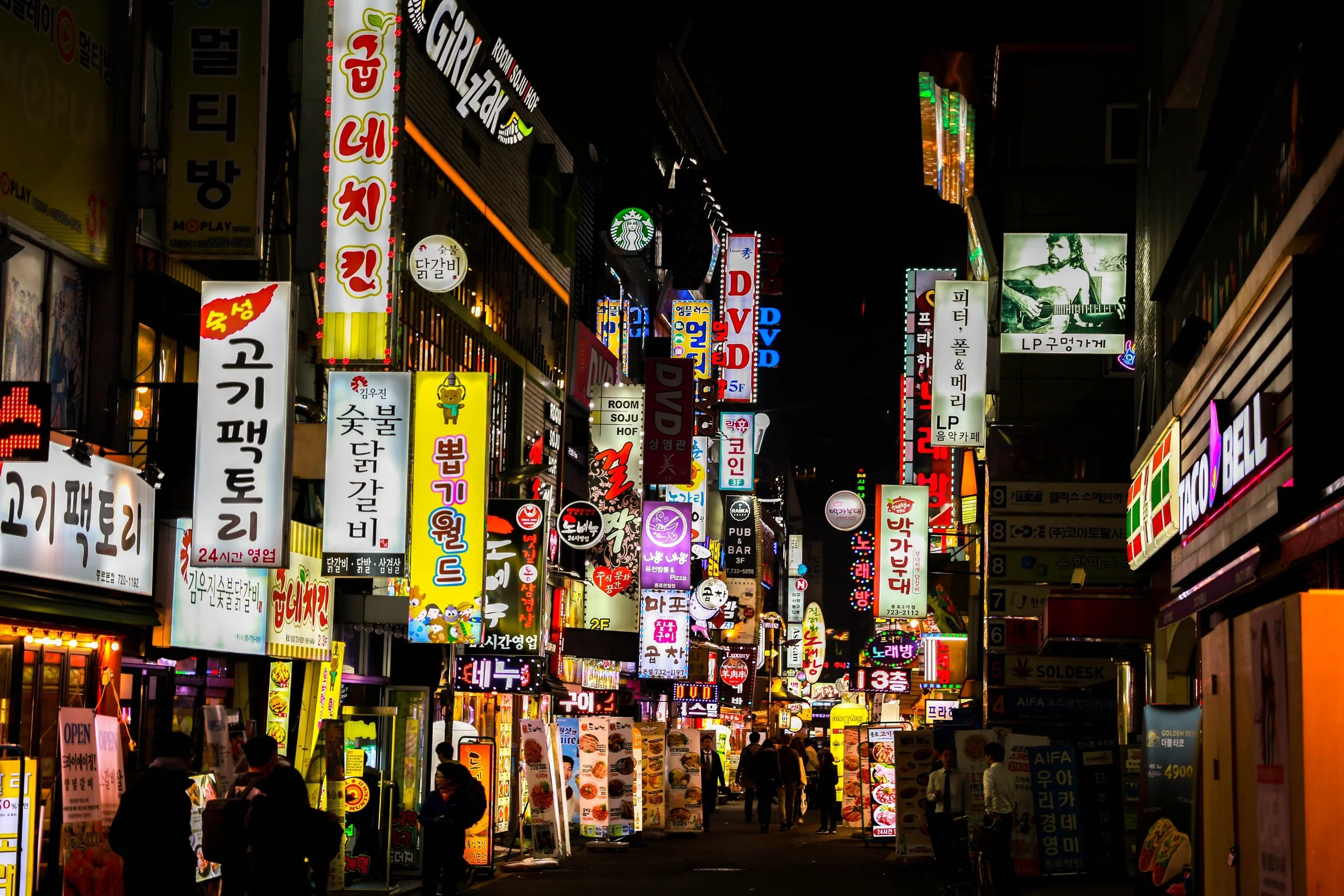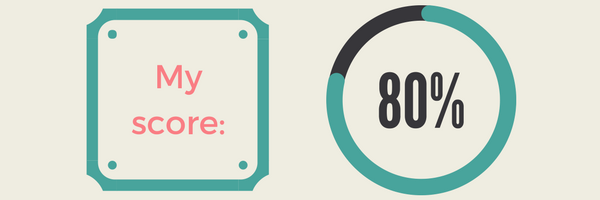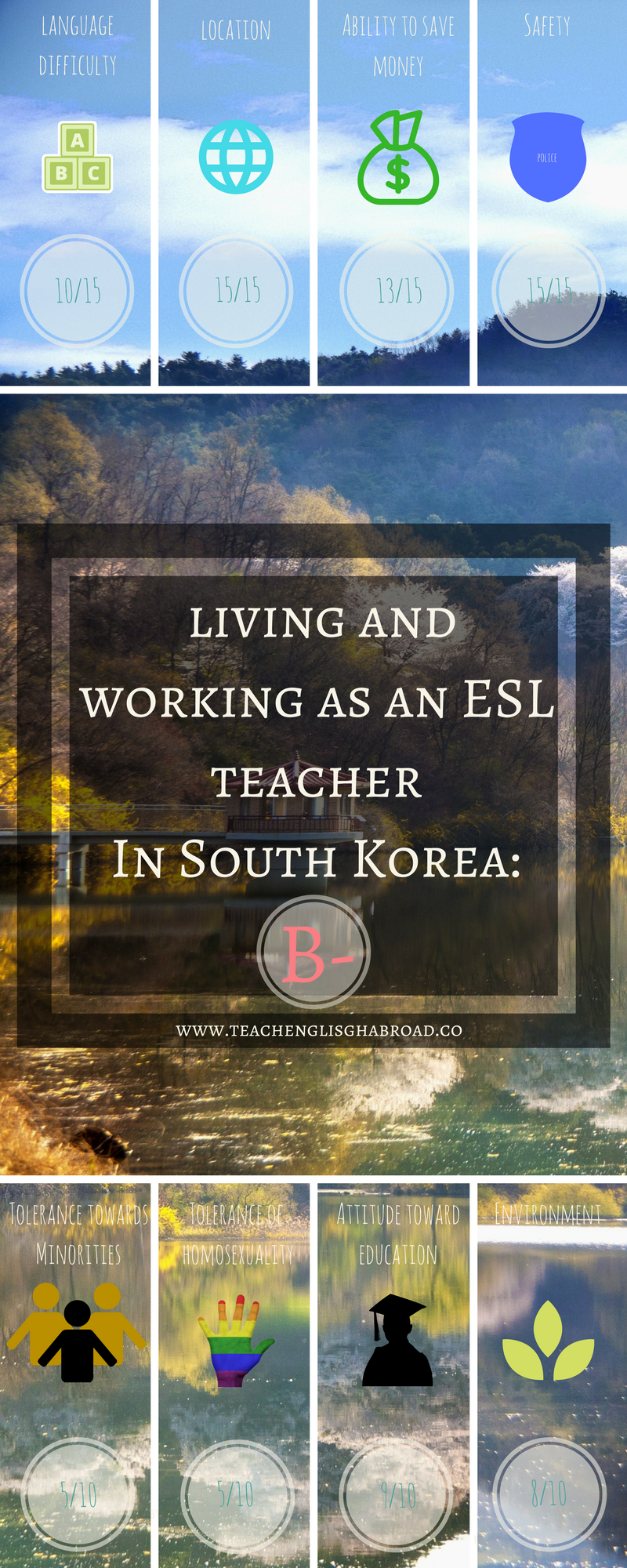Get Started Teaching English In: Korea
The most comprehensive guide to teaching English in South Korea.
South Korea: Country Overview
Geography
South Korea may only be 1/7th the size of Texas, but it packs a mighty geographic punch. Seventy percent of the country embodies uplands and mountains. There are three important mountain ranges in the country, the largest being the Taebaek Mountains, which run on the eastern coast from the north to the south. As South Korea is a natural peninsula, three bodies of water surround it: the Yellow Sea to the west, Korea Strait to the south, and the Sea of Japan to the east giving South Korea around 2,400 kilometers of coastline. Twenty-two national parks cover a little over six percent of the South Korean peninsula. By comparison, Texas maintains only two national parks. In summer, the temperature dances around 25°C, and can dip as low as -7°C in the winter.
Demographics
South Korea has a population of 50 million. Around ten percent of that population lives in Seoul, the second most densely populated city in the world (after Paris). South Korea has approximately 2 million expats, with China, Vietnam, the U.S., Thailand and the Philippines rounding out the top five nationalities. Over half the population claims to be unaffiliated with any religious organizations, though this may be due to Korean shamanism and how religion is defined. South Korea has a unique population structure, in that nearly 1/2 of all inhabitants fall between the ages of 25-54 years old, leaving many economists wondering how this country will deal with a rapidly aging population and low annual birth-rate. English is compulsory from year three, so while Korean is the official language of South Korea, you will find many Koreans can speak some level of English.
Economy
Apart from 0.03% of the population, everyone in South Korea has a secondary diploma. Two-thirds have post-secondary education. South Koreans earn an average annual salary of around USD 30,000 per year. With high-tech industries saturating this small, yet robust peninsula, it has been hailed as one of the fastest growing developed countries in the world and is set to dominate the global economy by the middle of the 21st century.
South Korea: ESL Industry
TEFL programs, Salaries, and class sizes
There are currently 2,443 English language schools in South Korea. You can find ESL jobs in a variety of educational fields, including nursery schools, language institutes, public and private schools, international schools, universities and even churches.
The average salary of an ESL teacher in both public and private education can be as low as USD 1,600 per month and as high as high as USD 2,500 per month.
Expect class sizes to be smaller in private schools and language institutes (hovering around a maximum of 15 students) and public schools to be upwards of 30 students per class.
Background requirements
The fundamental requirements for a teacher of English in South Korea are as follows:
A post-secondary degree (3 or 4 years depending on where you're from)
Clean, criminal background check taken from a national agency (like the FBI)
A clean bill of health (including a drug test)
A passport-holder of one of the seven English-speaking countries (U.S., U.K., Ireland, Canada, Australia, New Zealand or South Africa).
Note: South Korea is one of the strictest places to find work as an ESL teacher. If you are not from one of these seven countries, you cannot legally obtain a visa for teaching English. If you are offered a job as an English teacher and do not hold a passport from one of these countries, you will be working illegally, and potentially giving yourself a lot of trouble if you get caught. My advice is to avoid these kinds of situations. There are plenty of other opportunities for you to work legally.
Hiring Season
South Korea hires year-round for ESL teachers. There are surges, however, in early spring and summer, and again in late fall.
South Korea: Expat Life
Housing
Housing costs in South Korea can be eye-watering. With deposits alone, for small studio flats, starting out at USD 4,500, renting on your own can be extremely challenging. Luckily, the South Korean law dictates that anyone sponsored on an E2 visa (discussed below) shall have their housing costs covered (either in the form housing itself or a housing allowance). There are several different types of accommodation in South Korea, but for the sake of this article, we won't get into that here.
Utilities (electric/water/gas/internet)
Utilities in South Korea are similar to prices in the West. You can expect to pay between USD 70-200 on gas, water, and electric. Add an extra USD 50 for high-speed internet.
Transportation
Public transportation in South Korea is vast and inexpensive. Subway rides for adults typically cost a little over USD 1.00 for a journey. City buses range from USD 0.30 to USD 2.20 per trip. Taxis start from USD 2.60 up to USD 5.00 depending on the time of day, type of taxi, and the region in which you live. The final fare is calculated based on distance traveled.
Renting a car is also an option if you are over 21 with driving experience and have an International Driver's Permit (different from license) or a local Korean license. A small five-door car will cost around USD 30-45 per day.
You can also purchase, lease or finance a car, but that does not seem to be the norm for foreigners as it could get costly and fraught with a bureaucratic quandary.
Travel
Within South Korea, you have trains, intercity buses, ferries, and planes. Prices for these modes of transport are pretty reasonable by Western standards. Buses and trains, however, are neither the most reliable, nor the most comfortable.
Getting out of South Korea should be relatively easy, as Seoul's Incheon airport is the 19th busiest in the world. This makes it a natural hub for connecting to other parts of the region and the world.
Public holidays
There are 25 public holidays in South Korea, including Christmas day and western New Year's Day. Though be advised that if you end up working in a language institute ("Hagwon"), you will most likely be working during public holidays since these schools operate outside of regular school hours.
Banking
Foreigners with an alien registration card (ARC) may open up a bank account in South Korea without many issues. Many banks offer English services and accounts that come with little or no banking fees.
If you want to send money home, it is possible, but you may only remit 60% of your total monthly salary.
Credit cards are available to foreigners on a case-by-case basis and are typically more difficult to obtain if you seem like a high-risk candidate (young, low salary, limited work experience, etc.).
Visas
E2If you are going to teach a foreign language in Korea (be it English or any other), you will need to have an E2 visa. E2 visas are ordinarily processed in your own country using official paperwork sent by your employer. Be prepared to pay for the following:
Visa fee (± USD 55)
Official background check
Apostille fees (for the background check and university degree if you don't want to send the original)
Sealed, official transcripts from your university
Note that to process your visa, you will also need to interview at your nearest Korean consulate. While they do - at times - make exceptions for people whom distance is an issue, it is not a given, so be prepared to make a trip to the consulate office.
D10Korea offers D10 visas for foreigners who are in between jobs and looking for work. These visas are not granted outside of Korea and usually given to someone who has an existing E2 or D2 (study abroad) visa. This visa is useful for people who might want to take a break between their previous job and their future one. In many other countries, if you wanted to do this, you would need to go home and start the visa process all over.
South Korean Schools for foreign children
If you are a parent considering teaching English in South Korea, there are a variety of options for educating your child(ren).
Pre-school/NurseryChild care centers that care for children aged five and under, called Euh Lin E Jip, are operated by a variety of entities, including government and private institutions. They range in price, but you should expect to pay anywhere from USD 160-370 per month in fees.
Foreign schoolsForeign schools are more budget-friendly K-12 schools that cater to non-Korean children. Students are required to take 102 hours of Korean language and history, but the curriculum could be American or British, as well as many others. Tuition for these schools can range from USD 4,500 per year for primary/elementary school, to USD 10,500 per year for secondary/high school.
International SchoolsAt the very top, you have international schools that mostly cater to diplomats and wealthy Koreans. Unless you're considering working at an international school that exempts school fees for their teachers, don't expect to send your children here. The tuition and fees for any given international school in South Korea will start around USD 15,000 per year, and go as high as USD 30,000 per year.
*Note to single parents:
The subject of single-parent families is a somewhat taboo one in South Korea. Although they are pushing to make changes, judgment and open hostility still abound. If you are a single parent, especially one with a young child, I strongly encourage you to seek other EFL job opportunities. While researching schools for foreign children, I found many places required the ID of your spouse if you wished to place your child in that school, making the registration process nearly impossible.
Healthcare in South Korea
Under the National Health Insurance, everyone is covered - even expats! You are expected to pay into the NHI based on your earnings, where your employer covers half.
There are several in-take options available in the South Korean healthcare system. You can find clinics, private and public hospitals as well as hospitals that specialize in Eastern medicine.
When visiting a doctor - general or specialist - you can expect to pay a small premium for the consultation fees.
South Korea has some exciting benefits and significant challenges for teachers looking for ESL/EFL jobs. In my research, here are some critical findings:
Advantages of Teaching English in South Korea
Ability to save money
Everyday life in South Korea is relatively inexpensive. If you have modest spending habits, ESL teachers have reported they can save anywhere from USD 400-1000 per month.
Location
South Korea is flanked by many of Asia's top destinations, like Japan, the Philippines, and China, which means flights are relatively cheap for those looking to see more of the world!
Safety
For a place as densely populated as South Korea, crime is pretty low with an index rating of around 36 out of 100. Most people have reported feeling safe walking around at night alone.
Attitudes toward education*
From the figures above, we can see Koreans value education and respect the teaching occupation. Parents value you as an educator and your input as a teacher is regarded highly.
*The debate around the high-pressure study environment is topic for another post.
Challenges of teaching English in South Korea
Language
Korean is ranked as one of the most difficult languages to learn.
Racism
Korea is known for its racist attitudes toward black and brown people, as well as other Asians. As with other south-east Asian countries, Korea has an obsession with white skin. Skin bleaching products are the norm, and open disdain for darker skin is not uncommon.
Homophobia
South Korea is still very conservative concerning bi and homosexuality. While there are some gay-friendly places in larger cities, South Korean society still frowns upon open homosexuality and if you're Korean, it could land you some jail time.
Environment
If you are used to blue skies and the sound of birds chirping in the morning, South Korea, particularly Seoul, could be very challenging for you. As we mentioned, it is the second-most densely populated city in the world. With that comes environmental issues like air and noise pollution.
Is South Korea the best place to teach English abroad?
Based on the information above, out of 100 points:
Thinking of teaching English abroad?

Download my FREE Ultimate Toolkit For Teaching English Abroad. It is packed with all the information you need to get started.
Sources
https://en.wikipedia.org/wiki/South_Korea
https://en.wikipedia.org/wiki/South_Korea#Geography,_climate_and_environment
https://en.wikipedia.org/wiki/Taebaek_Mountains#/media/File:Korea_Taebaek_Mountains_location_map.svg
https://en.wikipedia.org/wiki/Education_in_South_Korea
https://en.wikipedia.org/wiki/Economy_of_South_Korea
http://www.averagesalarysurvey.com/south-korea
http://www.oecdbetterlifeindex.org/countries/korea/
https://tradingeconomics.com/south-korea/disposable-personal-income
http://english.yonhapnews.co.kr/national/2012/06/23/56/0302000000AEN20120623001200320F.HTML
https://www.oxfordseminars.com/esl-schools-directory/asia/south_korea
https://www.glassdoor.com/Salaries/seoul-teacher-salary-SRCH_IL.0,5_IM1103_KO6,13.htm
http://pulsenews.co.kr/view.php?year=2017&no=550698
http://hedgersabroad.com/2014/08/31/life_public_vs_hagwon/
https://www.internationalteflacademy.com/faq/bid/103906/what-are-the-basic-requirements-to-teach-english-in-korea
https://www.teachaway.com/blog/teach-english-abroad-non-native-speaker
https://www.ashoorilaw.com/e2-visa/
https://www.adventureteaching.com/our-blog/expat-life/living-cost-korea/
https://english.visitkorea.or.kr/enu/TRP/TP_ENG_8_1_1.jsp
http://english.visitkorea.or.kr/enu/TRP/TP_ENG_7.jsp
https://english.visitkorea.or.kr/enu/TRP/TP_ENG_8_3.jsp
http://koreajoongangdaily.joins.com/news/article/article.aspx?aid=2994652
https://www.internationalteflacademy.com/faq/bid/105248/what-are-hiring-seasons-for-teaching-english-abroad
https://www.gone2korea.com/when-to-apply-for-teaching-jobs-in-korea/
https://www.angloinfo.com/how-to/south-korea/transport/vehicle-ownership/buying-a-car
http://acerealty.co.kr/korea/driving/index.php
https://mostlymargaret.wordpress.com/tag/buying-a-car-in-korea-as-a-foreigner/
http://www.airportal.go.kr/index.jsp
https://www.seoul-airport.com/
https://en.wikipedia.org/wiki/Incheon_International_Airport#Annual_traffic
https://www.officeholidays.com/countries/south_korea/index.php
https://transferwise.com/us/blog/opening-a-bank-account-in-south-korea
http://www.korea4expats.com/article-credit-cards.html
https://www.justlanded.com/english/South-Korea/South-Korea-Guide/Education/International-schools-in-South-Korea
http://www.isi.go.kr/
http://www.teachingkimchi.com/977/list-of-all-international-schools-in-korea-2016/
https://www.sfs.or.kr/page.cfm?p=4
http://www.apis.seoul.kr/admissions/tuition-and-fees/
https://www.angloinfo.com/how-to/south-korea/family/babies-children/childcare
https://www.npr.org/sections/parallels/2015/05/11/405622494/south-koreas-single-moms-struggle-to-remove-a-social-stigma
https://www.umhs-sk.org/blog/health-care-around-world-south-korea/
https://www.npr.org/sections/parallels/2017/07/25/538464851/for-south-koreas-lgbt-community-an-uphill-battle-for-rights
https://en.wikipedia.org/wiki/LGBT_rights_in_South_Korea
https://www.numbeo.com/cost-of-living/country_result.jsp?country=South+Korea
https://www.numbeo.com/pollution/country_result.jsp?country=South+Korea
https://www.numbeo.com/crime/rankings_by_country.jsp
All conversion rates were performed using
http://www.xe.com/

